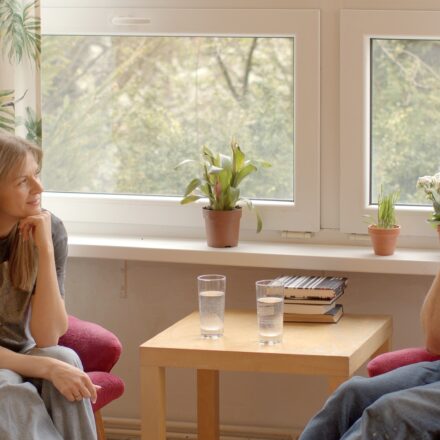Understanding Different Types of Addictions
It is easy for an addiction to grow and eventually take over someone’s entire life. But most addictions begin without people being aware of these spiraling behaviors. This not only applies to substance addiction but also behavioral addiction. Learning to recognize the signs and symptoms of these various types of addiction is important for prevention and timely intervention.
Addictions to Substances
People may become dependent and addicted to a wide range of substances, including, but not limited to:
- Alcohol
- Tobacco
- Opioids
- Prescription drugs
- Cocaine
- Marijuana
- Meth
With repeated and long-term use, people experience urges and cravings, cognitive problems, lack of attention, loss of mental sharpness, low work productivity, and many physical health issues.
Substance addiction also leads to risky behaviors such as sharing needles, having unprotected sex, or contracting transmittable diseases. Many people tend to develop co-occurring mental health symptoms and issues, such as insomnia, anxiety, and depression. When people mix multiple substances, such as alcohol and drugs, or different kinds of opioids, there can be a high risk of life-threatening overdoses.
Behavioral Addictions
Addictive behaviors are not always associated with substance use. Non-substance-related addictions include:
- Food addiction/eating disorders
- Sex addiction
- Social media addiction
- Work addiction
- Video game addiction
- Shopping addiction
- Excessive exercising.
According to the Diagnostic and Statistical Manual of Mental Disorders (DSM-5), all entities capable of stimulating a person can be addictive, and whenever a habit changes into an obligation, it can be considered an addiction.
Because behavioral addiction risk factors have the same biological bases as substance addiction, some of them can be treated by methods that are proven effective for the latter. These include SSRI medications, cognitive-behavioral therapy, and peer-support groups. Some behavioral disorders may create stress that leads people to substance use.
Seeking Treatment Options
Recovery experts now have a big toolkit of treatment methods. They can mix and match treatments based on what condition and symptoms you have. People with multiple disorders or addictions get a dual diagnosis. Treatment for this situation needs to be highly specialized and requires medical staff to work closely with mental health specialists.
Even for people suffering from a single type of addiction, there can be an integrated strategy to design a comprehensive treatment plan. Health professionals will assess your needs and pick from several therapeutic approaches. Or they may suggest changing to a different therapy when you made progress and adjustments in healing.
Different Types of Addiction Treatment Therapies
The most common type of approach to treating both substance and non-substance-related addictions is known as cognitive-behavioral therapy (CBT). The basic principle is easy to understand: our thoughts, feelings, and behaviors are closely connected, and all these factors affect our well-being. A trained CBT therapist can help people identify harmful thoughts and behavioral patterns in life. It is a problem-oriented strategy focusing on finding solutions.
Dialectal Behavior Therapy
Dialectical behavior therapy (DBT) is based on a biosocial theory to regulate emotions. It tends to people with a disposition toward emotional vulnerability. The therapist integrates many behavioral skills and teaches people how to recognize, understand, label, and regulate their emotions. It is an emotion-focused and change-oriented strategy.
Family Behavioral Therapy
Family behavioral therapy (FBT) has proven to be highly effective in both adults’ and adolescents’ addiction treatment. It involves key family members who can apply new skills of communication and stress management to improve the home environment.
Experiential Therapy
Another popular approach is experiential therapy. The therapist relies on the positive influence of nature, such as art-making, wilderness, or interactions with animals, to help feelings of healing and empathy. It is often used as a complementary treatment to other methods. For example, wilderness therapy can be especially helpful for people with dual diagnoses.
Building a Confident Roadmap to Recovery
Although addiction is a complex disease and takes different forms, we now have many effective tools to address these conditions. To build a confident roadmap to recovery, one needs to be educated about these conditions as well as the most effective treatment methods. To properly comprehend this knowledge, you need to understand not just the science of addiction and recovery, but also the available resources.
If you are looking for a roadmap or supporting a loved one in this journey, it is important to find a one-stop shop that provides you with the necessary coaching and resources. The scope of service offerings at each treatment center varies. But generally speaking, you would have a higher chance of recovery by working with programs that use an integrated approach with licensed staff members. It is also crucial to check out their extended care and alumni programs because continuing care is also important.
Addiction is a complex disease. Substance-related addiction may lead to co-occurring mental health issues. Even after completing detox treatment, some people may substitute non-substance-related addiction for their past addiction. For effective treatment, you need to work with experienced health professionals who work in these intersecting areas. A holistic treatment approach and quality extended care will boost your chance of long-term recovery. At Capo Canyon Recovery, near Mission Viejo, CA, we take pride in our holistic path, which is incremental to a sustainable, long-term recovery. We focus on each stage of recovery, both in terms of physical health and mental health. Our inpatient residential care and outpatient, long-term care programs offer unmatched benefits. We provide excess comfort with an in-house chef, luxurious beds, and an onsite organic garden during your sobriety journey. To learn more about our treatment programs, call us today at (800) 804-8714.














